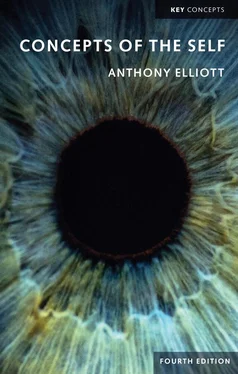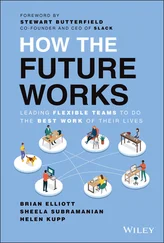We almost never think about the critical knowledge, including that of social science, that feeds into and contributes to our practical understanding of the self. And yet the knowledge skills that inform our personal repertoires of the self are shaped to their roots by academic and social forces. The British sociologist Anthony Giddens coined the term ‘double hermeneutic’ to refer to the application of lay knowledge to the technical language of the social sciences, as well as the utility of social science findings to the reality of a person’s day-to-day life. While philosophers have largely concentrated their energies on the ways in which lay concepts necessarily intrude into the claims of science, Giddens instead focused, appropriately enough for a sociologist, on how social science concepts routinely enter our lives and help redefine them. According to Giddens, the language of economics, or political science or sociology not only provides knowledge that informs in useful and edifying ways; the language of social science also creates knowledge in a much more profound sense, as the utility of this knowledge becomes basic to the economies, polities and societies of the contemporary epoch. The discourse of economics, for example, enters constitutively into the very social world it describes: the usage of terms like ‘liquidity’ and ‘inflation’ is in some part mastered, on the level of practical consciousness, by people going about their day-to-day affairs within modern economies; even though individuals might not be able to articulate the logical principles governing liquidity or inflation discursively, those same individuals exhibit a practical knowledge of such concepts whenever the bank is visited or goods are purchased prior to a price rise. To study some aspect of social life implies for Giddens that the findings of social science can be incorporated into the social practices that they are, in a sense, about.
Giddens’s claim that the practical impact of the social sciences is inescapable carries important consequences and implications for studying the self. Because the self is not a fixed entity, but is rather actively constructed, individuals are capable of incorporating and modifying knowledge that influences their sense of personal identity. Consider, for example, the notion of lifestyles. Today, lifestyles are a crucial aspect of both self-identity and social organization. Once the preserve of the rich and famous, the mass marketing of lifestyles through advertising has increasingly opened identity out to the realms of choice, individuality, aesthetics, disposable income and consumption. Interestingly enough, however, the word ‘lifestyle’ once denoted something very different. The Oxford English Dictionary lists the psychologist Alfred Adler as coining the term in 1929. Adler used the notion to describe a person’s essential character structure as established in early childhood. More specifically, he deployed it in order to account for personal behaviour and emotional reactions throughout the life cycle. He argued that the core style of life is founded in the first four or five years of childhood, and that a fragment of memory preserves the motives of a lifestyle for an individual. In time, Adler’s notion of lifestyle became incorporated into common stocks of knowledge by which individuals in the wider society pursue their personal and practical activities. This knowledge, modified as it was by advertisers, fostered an active (and no doubt also more coercive) restructuring of self-experience in terms of lifestyle pursuits and niche subcultures. Those who have drawn from this knowledge might never have heard of Alfred Adler, but his influence over the living of ‘lifestyles’ and the construction of the self has been immense – even though it has been in a fashion that he could not have foreseen, or (one suspects) approved. The broader point to note, at this stage, is that the relationship between professional and practical concepts of the self – that is, between academic and popular understandings of personal identity – is crucial to many of the social theories I discuss. How conceptual perspectives on the self mediate our everyday understandings of personal identity is a theme I shall examine throughout the book.
The emerging direction of contemporary social theory is perhaps nowhere more evident than in the attention it lavishes upon the nature of the self, self-identity and individual subjectivity. Questions concerning the social construction of the self; debates pertaining to the symbolic materials through which individuals weave narratives of the self; issues relating to the role that self-formation plays in the reproduction or disruption of culture and society: such questions, debates and issues have become increasingly prominent in the social sciences in recent decades. For those working within sociology, for example, the topic of the self has provided an opportunity for re-examining the relation between the individual and society, an opportunity to detail the myriad ways in which individuals are constituted as identities or subjects who interact in a socially structured world of people, relationships and institutions. The issues at stake in the construction of the self are quite different for feminist writers, who are instead concerned with connecting processes of self-formation to distinctions of gender, sexuality and desire. The challenge for authors influenced by postmodernism, by way of further comparison, is to estimate the degree to which the self may be fragmenting or breaking down, as well as assessing the psychological and cultural contours of postmodern selfhood. In all these approaches, the turn to the self provides critical perspectives on the present age as well as an important source of understanding concerning transformations of knowledge, culture and society.
Selfhood emerges as a complex term as a result of these various theoretical interventions, and one of the central concerns of Concepts of the Self is the discrimination of different meanings relating to the self, in order to introduce the beginning reader to the contemporary debates around it. What needs to be stressed at the outset is that different social theories adopt alternative orientations to mapping the complexities of personal experience, with selfhood squarely pitched between those who deny the agency of human subjects and argue in favour of the person’s determination by social structures, on the one hand, and those who celebrate the authenticity and creativity of the self, on the other. As a result, the language used by social scientists to analyse selfhood varies considerably: sometimes theorists refer to ‘identity’, sometimes to ‘the subject’ or ‘subjectivity’, and sometimes simply to ‘the self’. These terminological differences are not always especially significant, primarily because these terms can all be said to denote a concern with the subjectivity of the individual. However, others argue that such terminological differences are worth close attention, if only because they reflect deep historical and political transitions. For example, it can plausibly be argued that the concepts of ‘the self’ and ‘identity’, though similar, are not coextensive, since there are forms of identity that are not based on the self, namely, forms of collective identity – such as those influenced by nationalism. In this reading, collective identity gains its power through the establishment and recognition of common interests, built upon forms of solidarity involving battles over, say, social exclusion, nation, class and the like. Similarly, the self is also shaped and defined against the backdrop of such political and public forces; yet the fabrication of the self, psychologically and emotionally, is rightly understood to involve something more subjective, particularly the complex ways desire, emotion and feeling influence both conscious and unconscious experience of sexuality, gender, race and ethnicity.
Читать дальше












